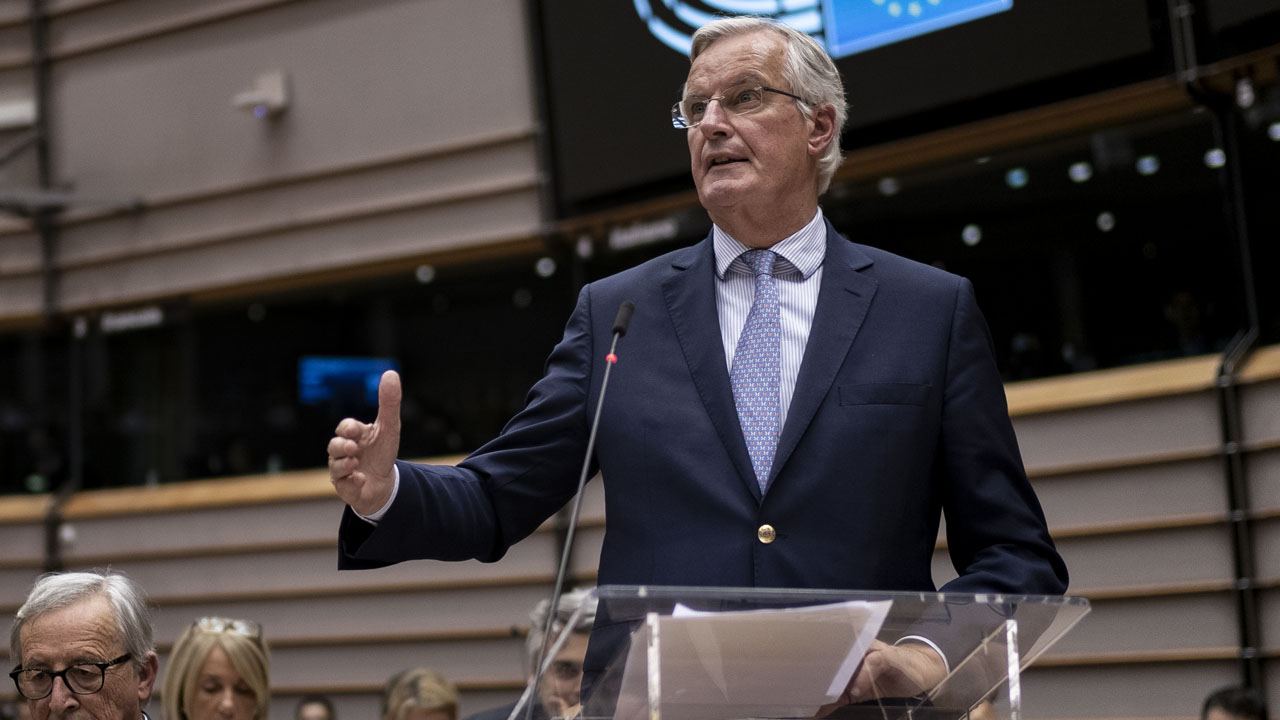
Technical talks on an agreement to govern Britain’s EU divorce are stalled, just days before what had been billed as a last chance European summit.
But on Friday British Brexit minister Stephen Barclay and chief European Union negotiator Michel Barnier sat down for a working breakfast.
There have been many false dawns in the talks, but Prime Minister Boris Johnson and his Irish counterpart Leo Varadkar are holding out hope.
After meeting in northwest England on Thursday, Johnson and Varadkar said they had “agreed that they could see a pathway to a possible deal”.
Speaking to reporters, Varadkar later said the meeting was “very positive”, suggesting it would be a “short pathway, rather than a long one”.
The key sticking point in the Brexit negotiations is the border between EU member Ireland and the British province of Northern Ireland, with time running out ahead of Britain’s scheduled departure in barely three weeks.
Few details as to how a deal on customs and the role of the Northern Irish assembly in any solution might work have leaked.
And if the path is to lead to a deal before Britain crashes out of the European Union on October 31, it had better be a short one.
The next European Council summit for Johnson, Varadkar and their colleagues from the other EU capitals starts on October 17 next week.
And, in normal circumstances, European diplomats would want draft texts of any agreements to be prepared before the close of business on Friday.
Even if, as UK officials hope, Brussels shows flexibility on the timeline, they have yet to enter the “diplomatic tunnel” of final text negotiations.
After his “stock-taking” breakfast with Barclay, Barnier will brief ambassadors from the other EU members on the state of play.
“Barnier will have to say whether we can or can’t start negotiating a text,” a European source told AFP.
“After that, it’s a long road. It’s wacky to think we’d have a treaty text before the October 17 and 18 summits.”
But Varadkar appears to be looking slightly further forward, implying that he and Johnson are now aiming for a deal in the next three weeks.
“I think we can come to an agreement, to have a treaty agreed… by the end of October,” he said.
But he cautioned there could still be obstacles along the way, after a more than three-year game of high-stakes political snakes and ladders.
“There’s many a slip between cup and lip,” he warned.
Johnson has vowed Britain will end its five-decade membership of the EU on October 31, with or without agreeing to exit terms.
But he could be forced to seek a third delay to Brexit if he fails to agree on a deal by October 19, thanks to a law passed by rebellious MPs.
Some European sources in Brussels have suggested that EU leaders may offer Britain an extension even if Johnson does not ask for one.
‘Customs and consent’
Since the 2016 British referendum vote for Brexit, negotiations have bounced back and forth between London and Brussels.
But Ireland has been a key player because of the issue of the UK’s only land border, between its province of Northern Ireland and Ireland.
Johnson and Varadkar met at Thornton Manor, a venue more commonly used for luxury weddings than discussing international divorce terms.
Their talks “concentrated on the challenges of customs and consent”, their joint statement said.
After British MPs rejected a “backstop” plan in a previous withdrawal agreement to keep the border open, Johnson presented a new proposal last week.
He proposes Northern Ireland stay aligned to the EU’s single market but remain in a separate UK-wide customs territory, envisaging customs but no regulatory checks on the frontier.
Northern Ireland’s opt-in to the plan would be open to four-yearly review by the province’s devolved assembly and executive.
But Brussels is adamant it will not agree to any plan that undermines the single market — which allows free movement of goods across Europe — or exacerbates tensions on the island of Ireland.
A free-flowing border is considered vital to maintaining peace in Northern Ireland, which was plagued by three decades of violence, largely brought to an end with the 1998 Good Friday peace accords.



